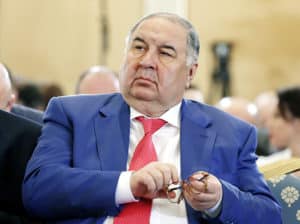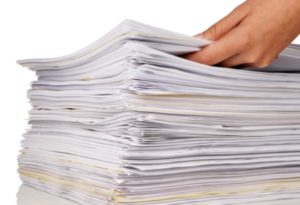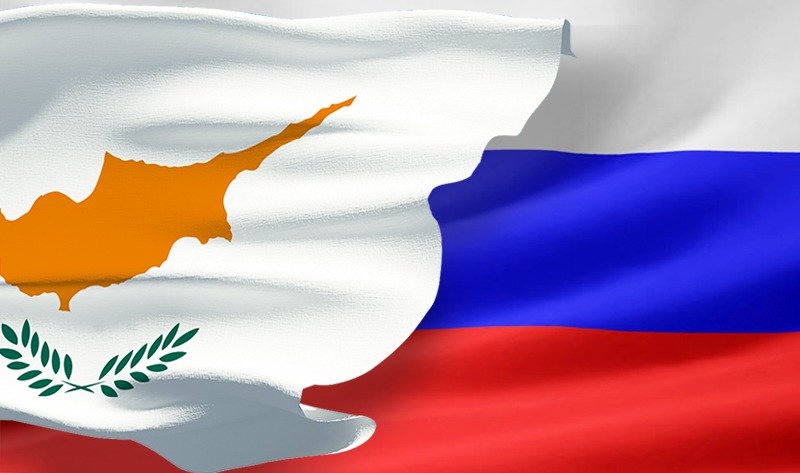Cyprus may have joined the EU and pledged its allegiance to the West but the latest sanctions by the US and UK have once again brought unwelcome attention to the country’s dealings with Russia
Have the latest sanctions on Cypriots trailed the country’s reputation through the mud – again? The government’s damage control has been in full force however there isn’t a shadow of doubt that there are a lot of eyes on the country watching very carefully how Cyprus will handle the latest crisis.
What the sanctions by the US and UK have also done is bring to the surface the depth of Cyprus’ historic business ties with Russian money. Though there has been a lot of clout on waiting to examine the evidence first, the fact remains authorities in the US and UK were confident enough to believe 23 Cypriot individuals and over a dozen companies on the island had acted in a manner that merited sanctions.
“When newspapers are calling Cyprus the Moscow of the Mediterranean, you realise what this says about the country,” the chairman of the Cyprus bar association (CBA) Christos Clerides told the Cyprus Mail.
In fact, foreign press have also picked up on the ‘Limassolgrad’ moniker given to Cyprus’ coastal city favoured by a lot of Russians.
On Sunday, President Nikos Christodoulides said they were waiting for the evidence behind the sanctions “any minute“.

Russian billionaire Usmanov
Old news?
The developments have inadvertently pointed the finger to the country’s service sector and legal sphere. In fact, an expose by The Guardian and the OCCRP that suggested Cyprus-based Meritservus may have in 2014 helped Russian oligarch Konstantin Malofeyev evade sanctions for almost three years, garnered a lukewarm response.
General manger of the institute of certified public accountants (Selk) Kyriakos Iordanou simply called it “old news.” He was not immediately available for comment.
The government is under no obligation to adopt the latest sanctions – it is only required to comply with EU and UN sanctions. The banking sector however is a whole other ball game. Though it of course follows the Republic of Cyprus’ legal framework, banks trade in dollars and sterling and are far more exposed.
As a result, they chose to implement the sanctions as well, leading to a bank account freeze on all sanctioned individuals and companies.
Clerides’ comments earlier in the week that the bank’s actions “were an overreaction” were rebuffed by experts saying ignoring the sanctions would’ve caused shockwaves across Cyprus’ economy.
In fact, Bank of Cyprus chief compliance officer Marios Skandalis left little room for doubt. Driving the point home earlier this week, he said had banks responded in any other way “the very next day, US dollar clearing banks would have shut down and our economy would have faced problems.”
Indeed, one banking source told the Cyprus Mail “there’s no question of thinking about it and giving the client time. It’s immediate.” International reputations are on the line.
Consequences
Clerides however said an arrangement should be made so the Vassiliades law firm, which was the only law firm (but not the only lawyer) hit by sanctions, could carry out operational transactions.
“How are the staff supposed to get paid?”
One source said allowing operational transactions would defeat the purpose of the sanctions.
Clerides ardently stressed lawyer (Christodoulos) Vassiliades had no idea this was coming. He was the only Cypriot sanctioned by both the US and UK. Vassiliades himself has argued he is currently trying to overturn the sanctions, denying any involvement. Meanwhile Clerides has also pointed the finger to UK authorities saying Usmanov and Abramovich have had hoards of money in the UK.
Lawyer and certified specialist on Russian sanctions Georgia Constantinou Panayiotou – who is also the spokeswoman for the CBA, described the sanctions as “unprecedented”.
“Unfortunately, but not surprisingly, this designation affects the entire services sector and the reputation of the country as well.”

Happier times for Roman Abramovich
The terminology used by the US and UK governments, has been to call all sanctioned individuals financial fixers or enablers. The sanctions, according to the UK “target those who have knowingly assisted sanctioned Russia oligarchs to hide their assets in complex financial networks.”
They are believed to have supported major Russian oligarchs Roman Abramovich and Alisher Usmanov.
Demetris Ioannides, named in the UK sanctions list “is responsible for crafting the murky offshore structures which Abramovich used to hide over £760 million assets ahead of being sanctioned following Putin’s illegal invasion of Ukraine.”
“Vassiliades is at the centre of a web of trusts and offshore companies that link Usmanov and Sutton Place Estate.” His daughter Annamaria Vassiliades who works in the firm, is also sanctioned by the US.
Clerides however presented a different argument, saying that nowhere in either statement from the US or UK, does it explicitly state sanctions were violated. Effectively, he posits it’s all about the timing.
What does that mean? The sanctions against Usmanov and Abramovich were imposed by the EU and UK in 2022. What Clerides is suggesting is that the financial networks which the sanctioned Cypriots may have set up, may have even been done 10 years ago “in efforts that helped Cyprus’ economy.”
If so, this could perhaps not be illegal because the Russian oligarchs were not sanctioned at the time.
“We need the evidence to confirm this.”
The warnings were there
Panayiotou notes the timing of the alleged financial enabling is still unclear. Nonetheless previous examples of professional enablers being sanctioned “indicate that those professionals have been designated because of illegal actions taken by them after or immediately prior to the sanctions date in order to knowingly avoid the freeze of assets of their sanctioned clients.”
Another source, who spoke to the Cyprus Mail on condition of anonymity phrased it a lot more bluntly: “do they think the Americans just sanctioned them for no reason? There’s so many lawyers in Cyprus that have worked with Russians – why would they sanction just these?”
Panayiotou notes that although it is not yet known what evidence US and UK authorities have, “the designation is based on US and UK authorities possessing evidence that several Cypriot professionals knowingly helped sanctioned Russian oligarchs hide their assets.”
One government source told the Cyprus Mail authorities had alerted Cyprus before the sanctions were announced and provided the list as a form of heads up.
“We are not in the position to know whether the Cypriot authorities were aware of this,” Panayiotou explains. “However we do know that for a designation to occur, the investigation must result in an administrative record that demonstrates that there is ‘reason to believe’ that the target meets one or more of the criteria for designation described in the relevant executive order.”

Each designation is typically supported by an ‘evidentiary’ which includes the target’s biographical information and exhibits used to justify the designation. “Exhibits may include press articles; corporate registry information; websites related to the target; mapped locations of target addresses; open- and closed-source investigative information; information extracted from government databases, court documents, executive orders and related determinations; internal or external memoranda for the record; unclassified, sensitive, confidential, and classified government reports; and memoranda from foreign governments.”
Could the sanctioned individuals have seen it coming? Panayiotou says all members of the CBA were warned in March last year, where they were informed of the criminal consequences they could face if they would attempt to circumvent sanctions. They were also advised that lawyers, being a high-risk profession, could eventually be characterized as professional enablers.
The CBA also made it obligatory for lawyers to inform the association if they provide services to legal entities or individuals that were sanctioned.
How many sanction units do we need?
So what happens now? After a meeting at the presidential meeting on Wednesday, the creation of a national sanctions implementation unit (Emek) was announced. ‘Creation’ however appears to be something of misnomer.
Already, the finance ministry chairs the advisory committee on economic sanctions (Seok) set up in 2012. There is also the unit implementing sanctions (Mek) was established in February 2016.
The aim of Emek is, among other things, to merge both units, government sources explained. Emek was in fact decided upon in June 2022 under the previous administration, and Wednesday’s meeting at the palace was to brief the president on the progress.
Last week Clerides expressed the sanctions may be “the tip of the iceberg” and more might follow. On Friday, the Central Bank of Cyprus governor Constantinos Herodotou said they had no information pertaining to that happening.
However, the government has made a point of saying they will examine the evidence and should it transpire that any criminal acts were carried out, i.e. assistance in sanction evasion, criminal proceedings will begin and justice will be served. Time will tell.







Click here to change your cookie preferences